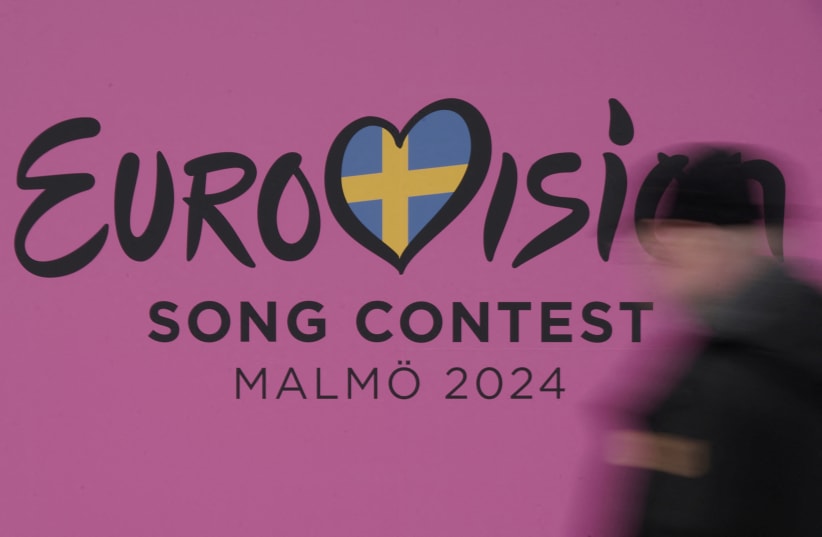
ISRAELI TALI GOLERGANT, REPRESENTING LUXEMBOURG, MAKES IT TO EUROVISION FINAL
In a surprising choice, Jerusalem born-Tali Golergant, who is representing Luxembourg in the 68th Eurovision Song Contest with the song, “Fighter,” made the cut for the Grand Final on Saturday night, after the first semi-finals took place on Tuesday night in Malmo, Sweden.
Golergant, an Israeli who has lived all over the world, has been a professional singer for seven years already, even though she is only 23. She wasn't expected to make it into the finals because the betting tables put her in 24th place.
Israel's contestant, Eden Golan, will not perform until the second semi-final on Thursday night. She is currently in eighth place in the Eurovision betting tables out of 37 countries. Due to Israel's involvement in the war against Hamas in Gaza, many artists have called for Israel to be barred from competing.
However, the European Broadcasting Union - the body that oversees Eurovision - has not heeded these calls.
Golan will perform "Hurricane," which has veiled references to the Hamas massacre in Israel on October 7 that led to the outbreak of war. A previous song submitted by Israel, "October Rain," was deemed too explicitly political and was rejected.
While Eurovision’s slogan is “United by Music,” this year there has been an enormous amount of tension surrounding the song contest, not only because of the calls to force Israel to withdraw but also because of threats to the safety of the Israeli delegation and fans and the fear of disruptive protests.
Eurovision controversies
The Israeli government has issued travel warnings for Israelis visiting Malmo, due to anti-Israel threats from the local population, and the Israeli security service has warned Golan and her entourage against leaving their rooms except when necessary. So far, Golan said she has not felt any hostility on the part of the other contestants or anyone she has met in Malmo.
As the song contest opened, several stars who have competed in Eurovision in the past performed in an opening number, and one of them, Eric Saade, appeared with a keffiya wrapped around his hand. Political symbols such as flags are strictly prohibited for artists performing or competing in the show, but Saade's keffiya, a scarf associated with the Palestinian cause, almost matched his black-and-white shirt, so it could have passed for part of his outfit.
The commentators on KAN 11, the channel broadcasting Eurovision in Israel, commented that Saade had not worn the keffiya in rehearsal. Saade represented Sweden in Eurovision in 2011 and finished third. His mother is Swedish and his father is a Palestinian from Lebanon. He attacked the European Broadcasting Union on social media for not allowing the display of any Palestinian symbols in the arena, "while symbols representing any other ethnic origin are welcomed."
He is one of more than one thousand musicians from Sweden who published a joint statement in January of this year calling for Israel to be kicked out of the competition. Video of him performing on Tuesday night was not uploaded to Eurovision’s Instagram account, although footage of the singers before and after him was.
Several performers, including Ireland’s Bambie Thug, who did make it to the finals on Tuesday, and the UK’s Olly Alexander, who didn’t, have spoken of being pressured to drop out of the contest because of Israel’s participation. They expressed sympathy for those calling on them to boycott but said they had decided not to.
The predicted winner of this year’s Eurovision, Baby Lasagna of Croatia, performed on Tuesday. His song, “Rim Tim Tagi Dim,” a high-energy tune about a young man leaving home to seek his fortune but filled with regret about saying goodbye, delighted the audience. The song was voted into the finals.
2024-05-07T19:56:01Z dg43tfdfdgfd